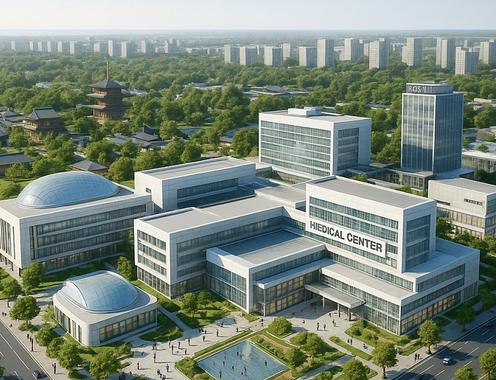A large-scale medical smart city — Tashkent Medical Smart City — is planned for construction in the Yukorichirchik district of the Tashkent region of Uzbekistan. The investment volume for the project is set at $5 billion, according to a draft presidential decree submitted for public review by the regional administration.
The document states that the new medical hub will occupy 400 hectares. The project will be implemented by TMSC, created with the participation of the South Korean architectural bureau HAEANH. The complex aims to advance medical tourism and introduce cutting-edge technologies while providing modern residential and business infrastructure. The initiative is expected to generate more than 7,000 jobs. Construction is planned to be fully completed by 2034.
The master plan includes an international-standard medical facility, an emergency medical center, a branch campus of a leading South Korean medical university, as well as a school and kindergarten with a medical focus. A Korea-style district with tourist attractions and a food street will also be built, along with a business center, shopping mall, hotel, multi-story residential complex, and other facilities.
Internal utilities and engineering networks — including power supply, water systems, sewage, bridges, and artificial reservoirs — will be financed by the investor. External infrastructure up to the smart city’s borders will be funded from Uzbekistan’s state budget. After completion, all engineering and transport infrastructure will be transferred to the balance of the Tashkent region.
The project will follow a fast-track model, with design, procurement, and construction carried out simultaneously, and facilities delivered on a turnkey basis.
The draft decree also specifies that the investor must compensate property owners whose land is requisitioned for the development. If the company fails to fulfill its obligations, the allocated territory will be returned to the regional authorities without reimbursement of the investor’s expenses.










